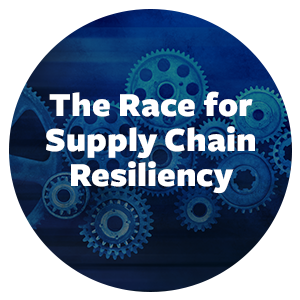Our Landscape

Manufacturing is still a primary source of wealth creation and job creation in the U.S.
Small and Midsized Manufacturers account for 80% of jobs created.
- For every $1.00 domestic manufacturing value-added spend, $3.60 of economic activity is attained.
- For every manufacturing job created, 3-4 non-manufacturing jobs are created.
- Brought about by the merger of the virtual world (internet, cloud computing, etc.) with the physical world ( Artificial Intelligence, robotics, sensors, etc.), which, through connecting technology called the Industrial Internet of Things (IIoT), Industry 4.0, will make possible the “Smart Factory” enabling such capabilities as Predictive Analytics and Maintenance and operating in interconnected Digital Supply Network.
Industry 4.0 inextricably links the workforce to how MNEs manage their supply chains and the suppliers in Supply Chain Networks that will soon connect."everything to everywhere all of the time".

In every board room, the avoidance of future interruptions to the continuity of supply is a survival mandate
To recover from the interruption to supply continuity caused by the pandemic, multinational enterprises (MNEs) are accelerating their adoption of Industry 4.0 technologies to achieve more supply chain resiliency – supply base transparency and predictability – to avoid future disruption. Because suppliers can constitute up to 80% or more of the value in their supply chain, Industry 4.0 will significantly impact how they assess supplier performance alignment and risk.

To avoid marginalization, acceleration of their digitalization transformation is a must.
The potential impact on minority manufacturers is ominous. Given current supply chain integration disparities, minority manufacturers risk even further marginalization unless supported to accelerate their understanding and adoption of industry 4.0 technologies, enabling them to operate “Smart Factories” and promote next-generation workforce training and job creation opportunities.

Preparedness for Industry 4.0 jobs will require aggressive and innovative solutions.
Workforce challenges are explained by the tsunamic impact that the Fourth Industrial Revolution, called Industry 4.0, is having on all manufacturing
- 1 million manufacturing jobs could, however, go unfilled by 2030 due to the lack of skilled workers
- 80% of the unemployed are without the skills to compete in increasingly digitalized supply chains
Our Programs
Our programs uniquely support community economic development by enabling minority manufacturing supplier competitiveness in Industry 4.0 supply chains and the fostering of job creation, workforce training, and credentialing opportunities
